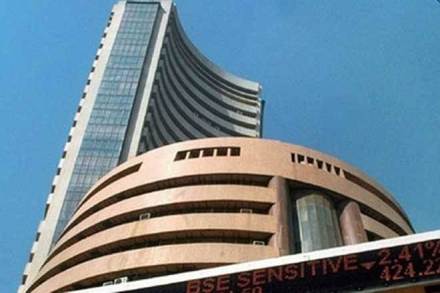The leading stock market bourses –the Bombay Stock Exchange (BSE) and the National Stock Exchange of India (NSE) are closed for trading today, October 28, 2019, on account of Diwali Balipratipada. Wholesale commodity markets, including metal and bullion, will also remain shut on the occasion. There will be no trading activity on forex and commodity futures markets to observe the occasion. Muhurat trading for this year has ended with headline indices posting gains. Sensex closed 192 points higher to 39,250, while Nifty closed at 11,627, after surging 43 points. Stocks of Tata Motors, Infosys, Yes Bank took a substantial leap. Only four out of 30 stocks listed on the Sensex closed in the red. Tata Motors, up 17 per cent, was the biggest gainer.
Also read: INTERVIEW | India needs bold reforms, reliable power supply to benefit from US-China trade war, says expert
Muhurat trading marks the beginning of the Hindu new year Vikram Samvat 2076. The stock markets in India arrange this special session because it is considered auspicious, and it is expected for trades conducted in this time period to bring prosperity, good fortune and wealth. Mahurat trading has been organised by BSE since 1957 while NSE started it from the year 1992.
Sharing his outlook for Samvat 2076, stock market veteran Raamdeo Agrawal said that equities are bound to do well. “There was never a question mark against my faith in equity, but as far as sentiment is concerned, it has dramatically shifted. The courage and the extent of government action that used to be a dream, is becoming kind of a day-to-day affair like cutting the corporate tax rate and this MAT benefit. We have been calling for it for so many years and it comes in just 110 days! They are even talking about PSU divestment. Okay it has not happened and that is why the market is really apprehensive,” he said in an interview to ET Now. Notably, investors will keenly look forward to a rally in new Samvat as Samvat 2075 had seen marginal movement. In Samvat 2075, Sensex and Nifty eked out smart gains, rising 11% and 10% respectively. But midcaps and smallcaps have sharply underperformed.
